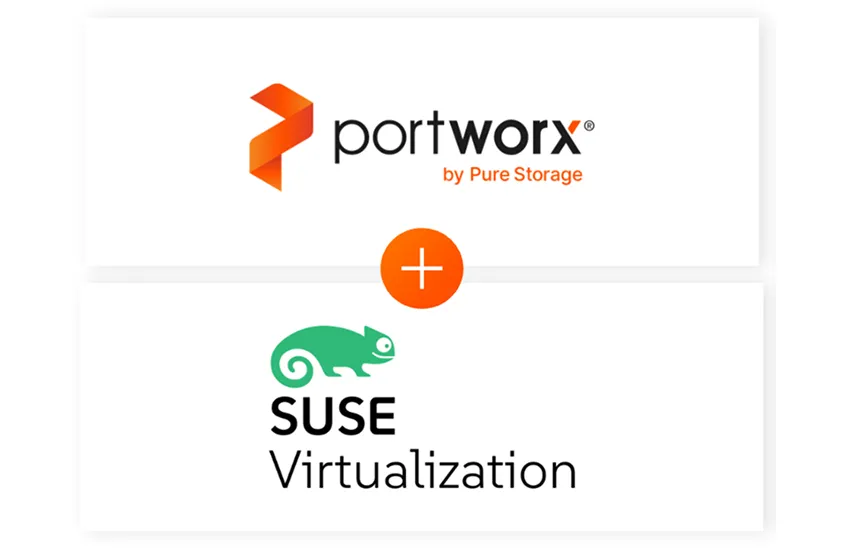This year, Kubernetes celebrates its 10th anniversary. What began in 2014 as an open source project at Google has become the gold standard for container orchestration.
Organizations across industries are not only adopting Kubernetes, but they are prioritizing their containerized workloads. Gartner®, Inc. states that by “2029, more than 95% of global organizations will run containerized applications in production — a significant increase from fewer than 50% in 20231.” Modernized infrastructure has proven to be more dynamic, portable and lightweight than more traditional infrastructure like virtual machines, resulting in lower infrastructure costs and faster application development.
In today’s rapidly changing world, moving quickly and efficiently is no longer an option. Enterprises must embrace containers to remain competitive, and they are investing their money accordingly.
Most New Applications Will Be Built on Cloud Native Platforms
To track the latest container trends, Portworx by Pure Storage worked with Dimensional Research to survey midsize to large enterprise organizations that run data on Kubernetes. Of the more than 500 people surveyed for the Voice of Kubernetes Experts Report 2024: The Data Trends Driving the Future of the Enterprise, 56% have over four years of experience with Kubernetes, making them experts in this 10-year-old technology. Therefore, the survey’s results reflect Kubernetes trends among experienced users.
Respondents were clear about their future priorities: Cloud native platforms, defined in the survey as “modern technologies such as containers, Kubernetes, immutable infrastructure, microservices and service mesh to develop scalable applications,” are the platforms of the future. Eighty percent say they plan to build most of their new applications on cloud native platforms in the next five years compared to 41% today, essentially doubling the investment in a cloud native future.
Experts are not only trusting their most critical applications to be built on cloud native platforms, but they are prioritizing these platforms. This indicates that cloud native has fulfilled its promise of scalability, flexibility and agility. While they see clear benefits, organizations need to be prepared to handle the complexities of cloud native environments to take full advantage of these platforms.
This means application development teams and the teams that support them, such as platform engineers, need an infrastructure stack that is container-ready and can help maximize developer agility. If these teams are not prepared to support the strategic investment in cloud native infrastructure, they may not be able to realize the full value of their platforms.
Hybrid Cloud Delivers Cost Savings, Application Portability and Resilience
Many organizations capitalize on the flexibility of cloud native platforms by choosing deployment environments based on their needs.
The survey reports that 86% of organizations of all sizes choose to deploy their cloud native technologies in hybrid cloud environments, with larger organizations preferring bigger on-premises footprints. Kubernetes allows organizations to seamlessly run both on-premises and in the cloud to leverage the best of both worlds, realizing benefits including:
- Cost savings: Organizations can optimize their infrastructure costs by distributing workloads between any environment of their choice for cost efficiencies. This also helps avoid vendor lock-in, so no team or organization is overly reliant on a single vendor.
- Application portability: Kubernetes provides consistency across environments, making it easy to move from one environment to another without much operational overhead. Infrastructure teams can take advantage of the benefits of any environment, and developers can use their preferred environment.
- Strengthen resilience: A hybrid cloud model can enable data resilience by providing multiple environments for failover. With effective disaster recovery protocols, organizations can failover from a cloud provider or data center that suffers an outage to an available replica.
Even though Kubernetes is highly portable and keeps the underlying infrastructure consistent whether it’s on-prem or in the cloud, managing these disparate environments separately can introduce many challenges that impact application delivery speed, resource utilization and costs.
Container Data Management Captures Cloud Native Platform Benefits
Despite its multiple benefits, Kubernetes is not easy to manage — especially with Day 0 and Day 2 operations. Therefore, organizations choosing containerized infrastructure must be prepared to handle the complexity of these environments by creating a centralized, consistently managed software stack that is as dynamic as their data.
A major component of a cloud native platform’s infrastructure stack must be a container data management solution with data and storage management capabilities for containerized environments.
Container data management automates, protects and unifies applications, simplifying data and storage management. By enhancing their developer experience with self-service storage, enterprises can accelerate developer productivity and reduce the cognitive load that comes with managing the complexity of cloud native platforms built in hybrid and multicloud environments.
To learn more about the Voice of Kubernetes Experts Report 2024: The Data Trends Driving the Future of the Enterprise commissioned by Portworx by Pure Storage, download the report today. If you would like to learn more about how Portworx can help you solve your container data management challenges today, visit the Portworx website.
1. Gartner, How to Run Containers and Kubernetes in Production, Stephanie Bauman and Arun Chandrasekaran, 18 April 2024. GARTNER is a registered trademark and service mark of Gartner, Inc. and/or its affiliates in the U.S. and internationally and is used herein with permission. All rights reserved.
Share
Subscribe for Updates
About Us
Portworx is the leader in cloud native storage for containers.
Thanks for subscribing!









